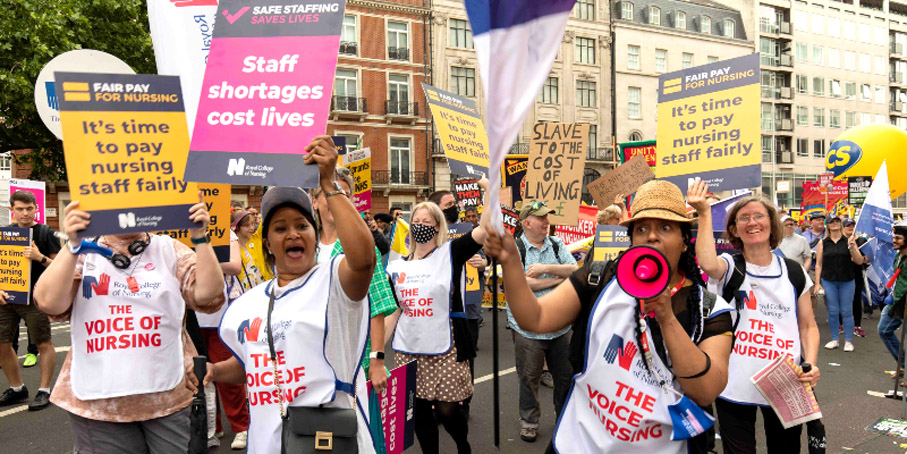GOVERNMENT’S refusal to properly finance the NHS has led to desperate people paying thousands of pounds for private treatment.
There were 69,000 self-funded treatments in the UK in the final three months of last year – a 39% rise on the same period before the pandemic.
People have resorted to crowdfunding to pay for private treatment.
Figures from the Private Healthcare Information Network (PHIN) do not include those who have private insurance – instead they are the people paying the full cost of treatment themselves – leaving them liable for huge bills.
The numbers paying for care reached 250,000 last year.
For operations like hip and knee replacements, the costs can top £15,000.
Patient groups warned that a two-tier system is being created, with the poorest losing out because they were the least likely to be able to afford to pay for treatment.
There are now more than 6.6 million people waiting for hospital treatment in England – one in nine of the population – and ministers have warned it could be 2024 before the numbers start coming down.
More than a third of them have been waiting more than the target time of 18 weeks. Similar problems are being seen in other parts of the UK.
- NHS bosses are warning that some NHS services will have to be cut to fund a pay award to NHS staff in England.
The government has announced doctors will receive a 4.5% pay increase and other staff an average of 4.75% – a rise backed by NHS England.
NHS workers are however demanding a 15% pay rise.
The Royal College of Nursing (RCN) leaders have said they will ballot members over taking strike action.
The RCN has called for a pay rise of 5% above inflation, the equivalent of 12.5% earlier this year.
A spokesman for NHS England said it was right that the government honoured the pay review body recommendations, because without this the number of vacancies would worsen.
But it said as the NHS was not getting any extra money to pay for the rise, services were under threat.
A spokeswoman said: ‘Given the requirement to fund this within existing Department of Health budgets, we will need to release money from existing programmes, regrettably impacting on the planned rollout of tech and diagnostic capacity across the health service.
‘But with ongoing cost-of-living pressures causing difficulties for many staff, it is crucial we support our hugely dedicated NHS workforce at this time.’
Meanwhile, the RCN called the pay award announced on Tuesday a ‘grave misstep’.
The government had only wanted to offer 3%, but agreed to more after a recommendation by the independent pay review bodies that make suggestions about pay rises in the NHS.
The award for non-medical staff is structured so everyone is guaranteed at least £1,400. It means the lowest-paid staff, such as porters and cleaners, will receive more than 9%, but more senior nurses will see their pay rise by closer to 4%.
RCN general secretary Pat Cullen said: ‘After years of underpayment and staff shortages, the fight for fair pay must continue.’
Doctors and dentists are to receive 4.5%, but this does not include junior doctors, who are only due just over 2% under a four-year deal agreed in 2019.
Ben Zaranko, of the Institute for Fiscal Studies, said the government faces an ‘uncomfortable choice’ on pay, given the situation with inflation.
He said finding extra money to cover the cost of the pay award would require higher borrowing, but agreed not doing so would require cuts, which arguably could be a ‘coherent response’ in the global economic situation.
